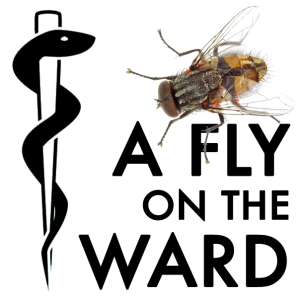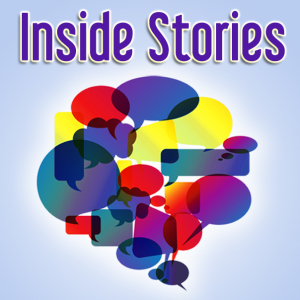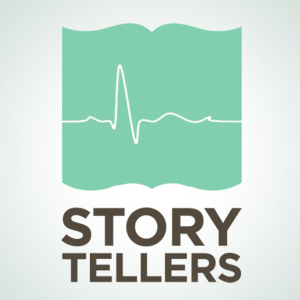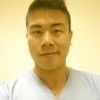 Jimmy Yan (9 Posts)
Jimmy Yan (9 Posts)Columnist Emeritus and in-Training Staff Member
Schulich School of Medicine & Dentistry at The University of Western Ontario
Hey, I'm Jimmy, I'm a member of the Class of 2015 at the Schulich School of Medicine & Dentistry located in the University of Western Ontario. I'm originally from Vancouver, and did my undergrad at UBC in physiology and commerce. I think these bios are a bit too short to really paint an accurate picture so find me on Twitter (@Jimmy_Yan) and we can connect that way!
A Fly on the Ward
The clerkship experience can be the definition of tumultuous. As we're suddenly tossed into the wards, it's easy to become caught up in the shuffle as we move through our service rotation. These posts try to take a step back and become "a fly on the wall" observing and reflecting on the overall movement through clerkships.
There exist, in truth, three simple words that strike dread into the hearts of every physician: Do. You. Remember. This phrase was introduced to me in the middle of first year. I was spending time in my medical student lounge when a link popped up on my newsfeed to a TED talk by Dr. Brian Goldman, an emergency physician from Toronto who hosts the radio show White Coat Black Art and who has also authored the book “The Night Shift.” In …
How can doctors-in-training learn to confront mortality with humility and self-compassion? Rehema, a first-year resident training in pediatrics in Washington D.C., reflects on the challenging experience of losing a patient as a medical student. She also shares her motivation for pursuing pediatrics: the significant opportunity to influence and prolong children’s lives.
The medical students, residents and Dr. G stood around the computer with backs hunched. With serious and emotionless faces, we stared directly into the screen. We were taken aback by the MRI results of his brain in front of us. Was this a primary tumor? An AVM? A dreaded metastasis from somewhere else in his body? How long has this mass been in his brain? Look at the size. Look at the calcifications. What did …
Kyle died early on a Sunday morning. His last meal was vanilla pudding, fed to him lovingly by his grandmother Shirley, while reruns of “Inspector Gadget” played in the background. When Kyle was born 25 years earlier, the family had been told he would not live more than a few weeks into infancy. But Kyle surprised everyone by surviving a quarter of a century with debilitating cerebral palsy. What surprised me most about Kyle was …
After arriving at the hospital, scrubbing in and warming up with a few anatomy questions with my attending, I was relaxed and ready to assist with the upcoming thyroidectomy. My patient, who will be referred to as “M,” was a 17-year-old girl who presented to the office with dizziness. After an extensive workup it was discovered that her symptoms were due to thyroid dysfunction. The surgery was meant to be a straightforward case, but the …
Medical training prides itself on being an art, never simply a black-and-white field where answers to increasingly complex health questions are merely algorithmically derived. It follows then that the only way for medical knowledge to transcend this rigid, computational process is through the accumulation of clinical experience, which over enough time should inform our intuition to the point where we become masters of navigating a sea of grays. This archetype is classically understood to be …
I read the latest progress note: ¨67-year-old male with metastatic lung cancer. Mildly agitated. Pain controlled with morphine.¨ I walk into a single room to see a frail man looking worn beyond his years. I introduce myself and ask if it is a good time to chat. He looks away and tells me that now is not a good time. I can see he has just received his lunch tray. Fair enough. I would not …
The only thing different was the room number and the day of the week. “Hey, our favorite flyer is back,” said my attending as I went to see the patient in room 10 for the first time in my life. The patient was already doomed as I became jaded, cynical and wondered what the health care system or we as physicians could do with patients like this. Let’s be clear, I still had never met …
After graduating from college, I worked at an outpatient oncology facility. I was an administrative assistant, manning the phones, sorting the mail, hounding the doctors to sign insurance forms and complete refill requests—basic, unspectacular stuff. I inhabited the bottom of the workplace hierarchy, beneath the nurses and nursing aids, below the receptionists and medical assistants. They say nurses and nursing assistants are a patient’s first point of contact; in reality, a patient’s first exchange with …
How can doctors-in-training address human rights issues through medical care? Hieu, a first-year medical student at Rush, interested in public health and preventive medicine, shares how his experiences as a community health worker in Uganda propelled his motivation to combat structural violence as a physician. He also reflects on the significant distinctions between treatment and care.
How can doctors-in-training honor their cultural heritage in their practice of medicine? Angie, a second-year medical student in Texas, describes how her Syrian heritage and deep concern about health care in Syria today drives her motivation to become a physician.
How can doctors-in-training discern when it is appropriate to detach in the face of suffering, and when a humanistic approach is needed? Robin, a fourth-year medical student completing a fellowship on the biopsychosocial impacts on health at the National Institutes of Health, describes her strategies for connecting with suffering patients.
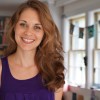 Annie Robinson (52 Posts)
Annie Robinson (52 Posts)Curator of Inside Stories and in-Training Staff Member
Columbia University
Annie Robinson completed a Master of Science in Narrative Medicine at Columbia University in 2014. She previously studied the healing power of stories as an undergraduate at NYU’s Gallatin School of Individualized Study.
Annie works as Narrative Coaching Specialist with Eating Disorder Recovery Specialists, helping individuals in the early stages of eating disorder recovery through mindfulness, meditation, yoga, and narrative practices. She is also the Program Officer at Health Story Collaborative, a non-profit that creates forums for individuals to tell their stories of personal health challenges, and curates another oral narratives projects called On the Road to Recovered: Voices from the Eating Disorder Recovery Community.
Annie is a coordinator and full-spectrum doula for The Doula Project in New York City, providing compassionate care for women during experiences of abortion, miscarriage, and fetal loss.
As a yoga teacher, writer, educator, and co-founder of NYC-based wellness community Pause, Breathe, and Connect, Annie shares her passion for integrative approaches to wellbeing. She is dedicated to creating spaces for people to explore the healing potential of interweaving of stories, spirituality, and somatic experience.
Inside Stories
Inside Stories is an oral narratives project which invites medical students to share their experiences in medical school in the form of brief podcasts published and archived on in-Training. The project aims to provide a means of personal healing, self-realization and empowerment through the sharing and receiving of personal stories, as well as to cultivate community among students in the often isolating medical school environment. The title Inside Stories reflects the project's mission to encourage students to go inside themselves and bring forth things that often go unspoken. It also represents the inside look listeners are granted into the sometimes private, challenging and confusing experiences students may have.
Made possible in part by a grant from the Arnold P. Gold Foundation and FJC.





